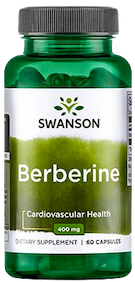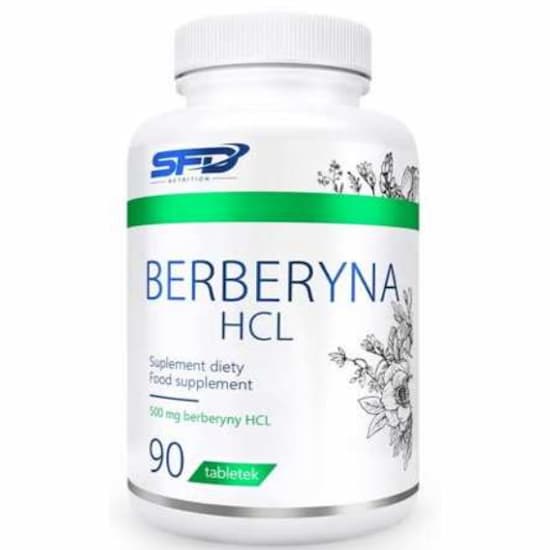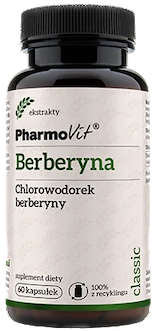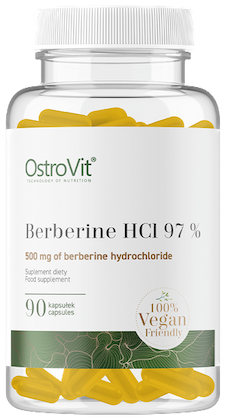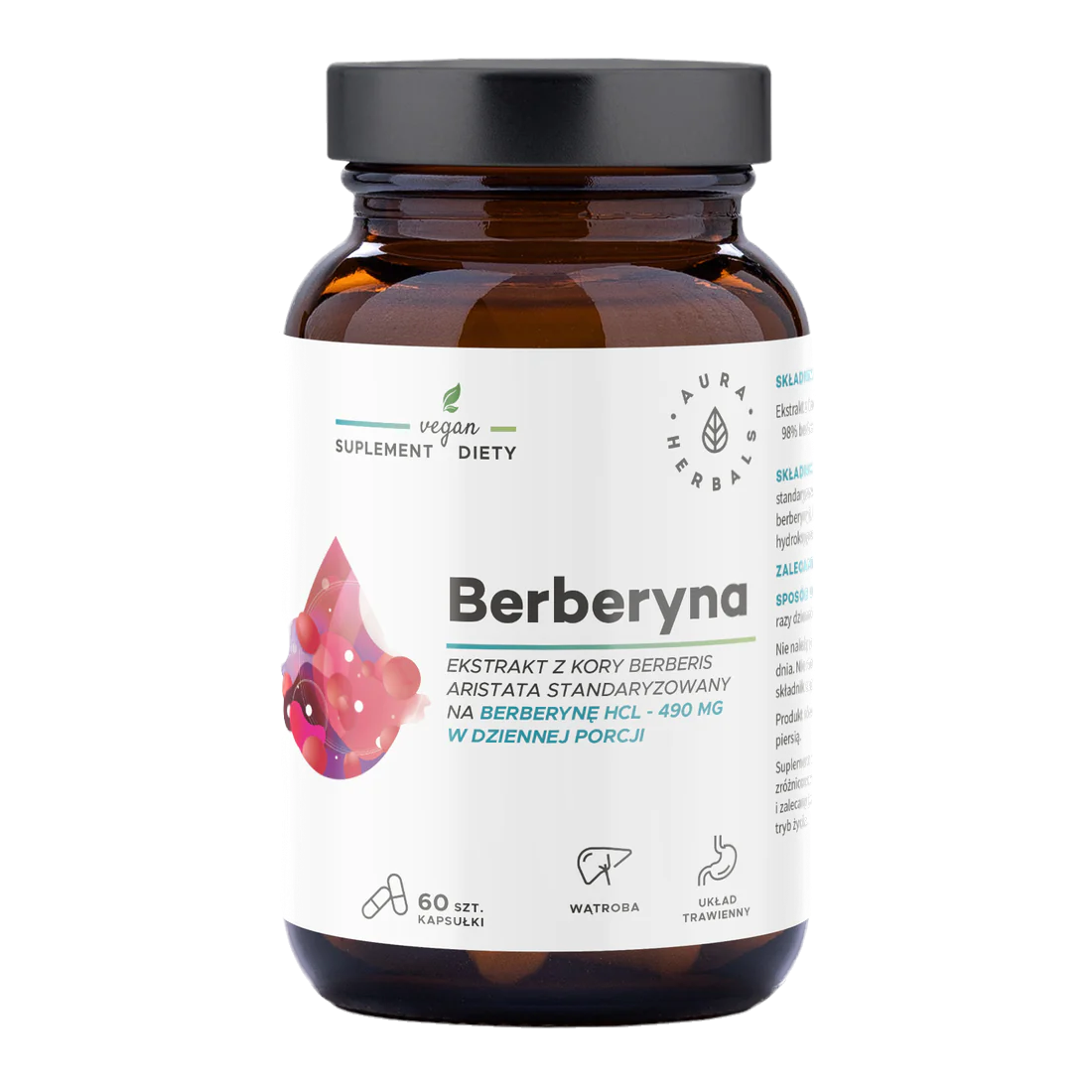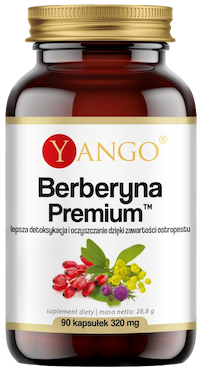Berberine side effects (from headaches, through dizziness, to heart and kidney problems)
Find out what side effects the consumption of berberine can bring.


Learn more about our editorial process
.

Learn more about our editorial process
.

Learn more about our editorial process
.

Learn more about our editorial process
.
Why you can trust us
Articles on Natu.Care are written based on scientific research, data from government websites and other reliable sources. The texts are written in cooperation with doctors, nutritionists and other health and beauty experts. Articles are reviewed before publication and during significant updates.
.Learn more about our editorial process
.Information about advertisements
Content on Natu.Care may contain links to products from the sale of which we may receive a commission. When creating content, we adhere to high editorial standards and take care to be objective about the products discussed. The presence of affiliate links is not dictated by our partners, and we select the products we review ourselves completely independently.
.Learn more about our terms and Conditions
.After all, berberine is from plants, it cannot harm you. Well, nothing could be further from the truth. It is a potent substance from not just any plant.
Dietary supplements, even those derived from plants, can cause unpleasant side effects. Sometimes it's a lottery - some will complain of headaches, others of sprints to the toilet. It is important that you are aware of what to expect and how to avoid side effects.
From this article you will learn:
- What the side effects of berberine can be.
- How to minimise or avoid side effects.
- How berberine affects the body.
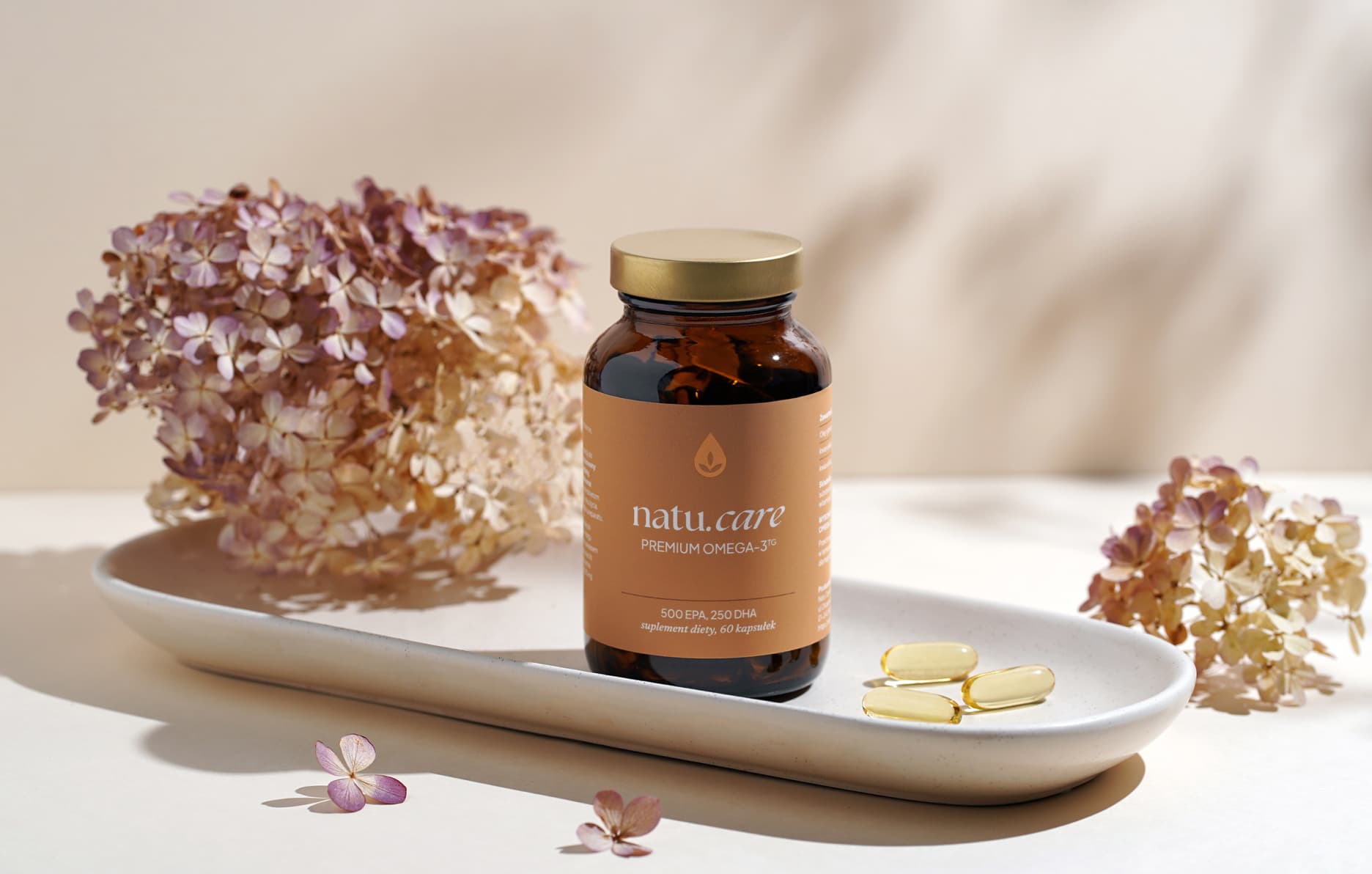
Sprawdź, za co pokochały go tysiące klientek Natu.Care Premium Omega-3ᵀᴳ -15% z kodem BLOG15
Natu.Care Omega-3ᵀᴳ Premium
Natu.Care Omega-3ᵀᴳ Premium dla zdrowia serca, mózgu i odporności. Najlepsza przyswajalność. Optymalna dawka 750 mg. Przebadana przez niezależne laboratorium.
Zobacz więcej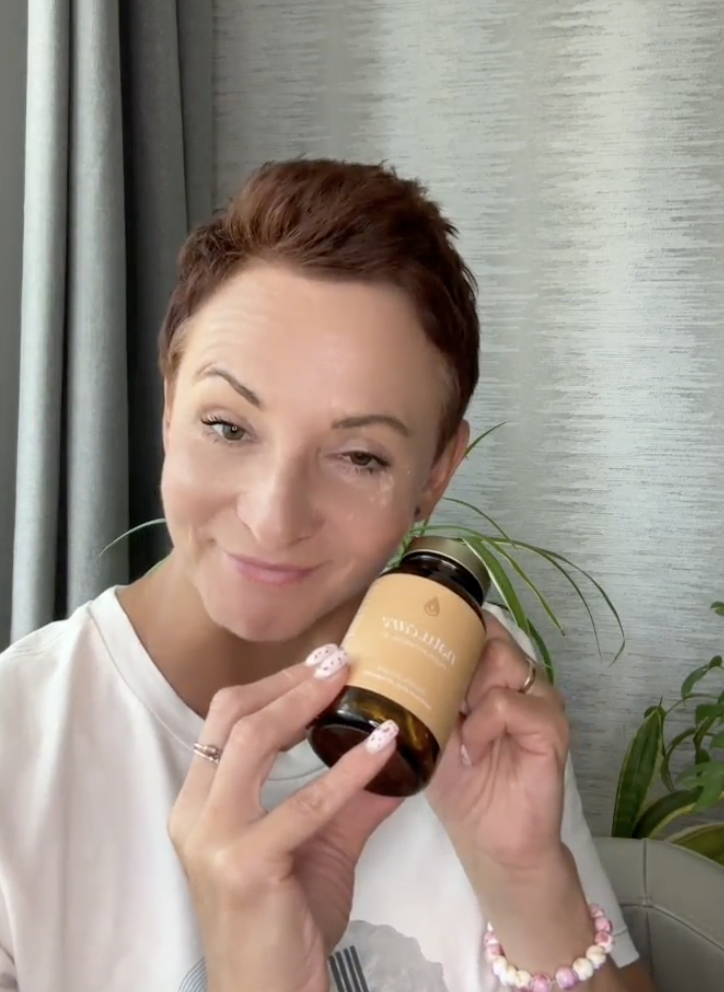
Produkt ma super skład, transparentną etykietę i co dla mnie jest ważne – małe kapsułki do połknięcia. Nie ma też nieprzyjemnego efektu odbijania rybą, który miałam spożywając inne produkty. Widzę znaczną poprawę odporności. Polecam!@Kasia P.
See also:
- Berberine
- Berberine - contraindications to use
- Berberine for weight loss
- Swanson berberine - composition analysis
Berberine side effects
Berberine, especially in doses above 1,500 mg per day can cause side effects such as abdominal pain, diarrhoea, constipation, nausea, vomiting and impaired absorption of other nutrients in some people. Doses that are too high can also cause low blood pressure and hypoglycaemia .
Unpleasant side effects usually occur due to its incorrect dosage (usually excessive) or interactions with other drugs, herbs or dietary supplements.
What are the most commonly reported side effects ?
Gastrointestinal problems
- diarrhoea,
- constipation,
- diarrhoea,
- vomiting,
- nausea,
- abdominal pain,
Impaired absorption of other substances
Berberine can reduce or potentiate the effects of drugs, vitamins, minerals and nutrients . This results in either not treating diseases because the medicine is not working, or putting yourself at risk of poisoning due to too high a concentration of active substances in the medicines or nutrients.
Pressure reduction and dizziness
Berberine can dilate blood vessels and reduce blood pressure. This can cause headaches and dizziness .
Hypoglycaemia
Research suggests that large amounts of berberine can cause hypoglycaemia (hypoglycaemia) in patients with type 2 diabetes, which manifests as muscle tremors, weakness, sweating and increased hunger, among other symptoms .
Interaction effects with other substances
Berberine may interact with some medicines, dietary supplements and foods . Symptoms depend on what exactly berberine is 'competing' with.
The most common symptoms associated with berberine interacting with another ingredient are :
- .
- nausea, vomiting, diarrhoea,
- headaches,
- increased or decreased concentrations of other active substances (e.g. from medicines) in the body,
- blood thinning and increased risk of bleeding .
- grapefruit juice,
- with drugs used after transplants (cyclosporine),
- with antibiotics (tetracyclines),
- with anticoagulants (aspirin, heparin, warfarin),
- with NSAIDs (non-steroidal anti-inflammatory drugs),
- with blood sugar-lowering drugs (metformin, insulin),
- with blood cholesterol-lowering drugs (statins, fibrates),
- with blood pressure lowering drugs,
- with sedative drugs.
How to avoid side effects? Expert advice
Dietitian Aleksandra Cudna has prepared a mini-tutorial on how to minimise the occurrence or avoid side effects when taking berberine.
- Comply with the dosage recommended by the manufacturer or your doctor.
- Check interactions of berberine with medications you are taking.
- Avoid the use of herbs, especially those with sedative, blood pressure or blood sugar-lowering effects (e.g. ginkgo biloba, garlic, Chinese clove, lemon balm, ashwagandha, valerian, field horsetail, nettle).
- Do not drink alcohol while taking berberine or maintain a minimum interval of a few hours.
- Do not combine berberine with grapefruit juice. Maintain a 4-hour interval between their intake.
When taking dietary supplements made from natural ingredients, we often forget how powerful they can be. It seems to us that, after all, something given by Mother Nature cannot harm us.
The nutritionist explains:
Berberine belongs to the group of alkaloids, i.e. organic compounds with strong effects on, among other things, the brain and nervous system. Depending on the type of alkaloid, they can have analgesic, stimulant, sleep-inducing, antipyretic and even hallucinogenic effects.
 .
.
Alexandra Cudna Clinical nutritionist
Alkaloids, or what? We're talking about the company of substances such as caffeine and nicotine... but also cocaine, morphine and strychnine. Don't panic, but don't underestimate berberine.
If used incorrectly, alkaloids can be dangerous to your health and harm you, so don't underestimate these active substances from plants.
Grapefruit juice
People should avoid juice from this fruit while on medication. Is this a conspiracy by grapefruit heathens? No. Grapefruit can alter the activity of hepatic CYP3A4 enzymes, increasing drug concentrations in the blood and affecting drug metabolism and potentially causing adverse side effects .
Berberine - properties and uses
Berberine is a bioactive compound present in the leaves, roots, rhizomes, bark, twigs and stems of several plant species, including barberry . Berberine belongs to the alkaloid group. They are chemical compounds of plant origin with potent effects on the body .
Scientific studies to date confirm that berberine :
- .
- lowers blood sugar concentrations in people with type II diabetes,
- lowers concentrations of total cholesterol, LDL cholesterol (so-called bad cholesterol) and triglycerides,
- increases concentrations of HDL (so-called good cholesterol),
- lowers apolipoprotein B - an important indicator of cardiovascular disease risk,
More research is needed, but potentially berberine may :
- promote weight loss, by affecting fat-regulating hormones ,
- boost immunity against viruses, bacteria and fungi ,
- positively influence the gut microbiome ,
- act as an anti-inflammatory ,
- prevent non-alcoholic steatosis disease liver disease ,
- Alleviate symptoms and reduce the risk of death in patients with heart failure,
- support the treatment of depression ,
- support the treatment of polycystic ovary syndrome with insulin resistance (PCOS) ,
- influence the reduction of skin complaints, such as those associated with atopic dermatitis (AD) .
Maybe of interest:
- Berberine
- Berberine for weight loss
- Curcumin
- Piperine
- Ashwagandha
- Indian ginseng
- Adaptogens
- Recommended plant-based dietary supplements
Berberine Swanson HCL
Product description
The preparation contains berberine, a plant active substance whichós positive effect on the regulation of sugar-insulin metabolism and lowers the concentration of „bad” cholesterol, increasing the concentration of „good” cholesterol. It can also aid weight loss.
.Pros and cons
The preparation contains berberine, a plant active substance whichós positive effect on the regulation of sugar-insulin metabolism and lowers the concentration of „bad” cholesterol, increasing the concentration of „good” cholesterol. It can also aid weight loss.
.Additional information
The preparation contains berberine, a plant active substance whichós positive effect on the regulation of sugar-insulin metabolism and lowers the concentration of „bad” cholesterol, increasing the concentration of „good” cholesterol. It can also aid weight loss.
.Expert opinion
The preparation contains berberine, a plant active substance whichós positive effect on the regulation of sugar-insulin metabolism and lowers the concentration of „bad” cholesterol, increasing the concentration of „good” cholesterol. It can also aid weight loss.
.Product description
The main ingredient in the preparation is berberine in the form of a standardised extract. It has anti-inflammatory and antioxidant effects and lowers blood lipid levels.
Expert opinion
The preparation contains Indian barberry extract – standardised for berberine hydrochloride. This substance exhibits anti-inflammatory, antioxidant, antimicrobial, blood lipid-lowering and hypoglycaemic effects.

Ilona Krzak master of pharmacy
Additional information
<p>Usually, large fluctuations in blood glucose and abnormal glucose utilisation are the causes of weight gain. A definite advantage of the preparation is the standardisation of the extract. This way, you know how much of the active substance you are getting. There are also reports that <a href=‘https://natu.care/pl/rosliny/berberyna-na-odchudzanie’>berberine</a> is helpful during the pharmacotherapy of depression.</p>
<p><strong>Learn more about berberine and its properties in Nina Wawryszuk's article: </strong><a href="https://natu.care/pl/rosliny/berberyna"><strong>Berberyna – działanie, właściwości, skutki uboczne, dawkowanie</strong></a></p>
Product description
Berberine supports sugar and insulin metabolism, the cardiovascular system and liver function. It can promote weight loss, protect the liver and positively influence the gut microbiome.
Pros and cons
Berberine supports sugar and insulin metabolism, the cardiovascular system and liver function. It can promote weight loss, protect the liver and positively influence the gut microbiome.
Additional information
Berberine supports sugar and insulin metabolism, the cardiovascular system and liver function. It can promote weight loss, protect the liver and positively influence the gut microbiome.
User review
Berberine supports sugar and insulin metabolism, the cardiovascular system and liver function. It can promote weight loss, protect the liver and positively influence the gut microbiome.
Product description
Berberine supports sugar and insulin metabolism, the cardiovascular system and liver function. It may support weight loss, protect the liver and have a positive effect on the gut microbiome.
Pros and cons
Berberine supports sugar and insulin metabolism, the cardiovascular system and liver function. It may support weight loss, protect the liver and have a positive effect on the gut microbiome.
Additional information
Berberine supports sugar and insulin metabolism, the cardiovascular system and liver function. It may support weight loss, protect the liver and have a positive effect on the gut microbiome.
Berberine supports sugar and insulin metabolism, the cardiovascular system and liver function. It may support weight loss, protect the liver and have a positive effect on the gut microbiome.
Product description
Berberine supports sugar and insulin metabolism, the cardiovascular system and liver function. It may promote weight loss, protect the liver and positively influence the gut microbiome.
Pros and cons
Berberine supports sugar and insulin metabolism, the cardiovascular system and liver function. It may promote weight loss, protect the liver and positively influence the gut microbiome.
Additional information
Berberine supports sugar and insulin metabolism, the cardiovascular system and liver function. It may promote weight loss, protect the liver and positively influence the gut microbiome.
Product description
A dietary supplement with berberine, whichóra has a positive effect on sugar-insulin balance and reduces the risk of heart disease. It can support the weight loss process.
Pros and cons
A dietary supplement with berberine, whichóra has a positive effect on sugar-insulin balance and reduces the risk of heart disease. It can support the weight loss process.
Additional information
A dietary supplement with berberine, whichóra has a positive effect on sugar-insulin balance and reduces the risk of heart disease. It can support the weight loss process.
A dietary supplement with berberine, whichóra has a positive effect on sugar-insulin balance and reduces the risk of heart disease. It can support the weight loss process.
Summary
- The most common side effects of berberine are: stomach problems, impaired absorption of other substances and nutrients, interactions with medications and herbs, lowering of blood pressure and hypoglycemia.
- The most common side effects of berberine are: stomach problems, impaired absorption of other substances and nutrients, interactions with medications and herbs, lowering of blood pressure and hypoglycemia.
- Side effects most often affect people who do not follow the manufacturer's recommendations regarding dosage and contraindications to use.
- To minimise or prevent the risk of side effects, do not exceed the daily portions and pay attention to other medicines, dietary supplements and herbs you are taking.
- Berberine is an alkaloid and has a positive effect on sugar-insulin metabolism and cholesterol.
FAQ
What are the harms of berberine?
Berberine used in large amounts or in combination with certain medications can harm health and cause side effects such as: stomach discomfort, excessively low blood sugar and blood pressure, and impaired absorption of medications and nutrients, which can lead to abnormal blood levels (too low or too high).
What not to combine berberine with
Berberine should not be combined with alcohol, grapefruit juice and drugs used to treat psychiatric problems, diabetes, high cholesterol. Berberine should also be avoided in combination with antibiotics (tetracyclines), anticoagulants, anti-inflammatory drugs and drugs used after transplants.
Does berberine harm the kidneys?
There is no conclusive evidence that berberine harms the kidneys. Scientific studies to date show its protective effect on the kidneys. Further work by researchers is needed to determine the full extent of berberine's effects on kidney function.
Does berberine raise blood pressure?
There is no conclusive scientific evidence that berberine raises blood pressure. On the contrary, one study found that berberine may have a hypotensive, or blood pressure-lowering effect. Berberine has positive effects on cardiovascular health.
Can you overdose on berberine?
Yes, it is possible to overdose on berberine. Using too high a daily dose (more than 1,500 mg) can cause gastrointestinal problems (vomiting, diarrhoea, constipation, nausea), excessive lowering of blood pressure and blood sugar levels (hypoglycaemic state).
How long can berberine be used?
How long to use berberine is an individual issue and depends on the health, purpose of use and dosage in the individual. Clinical studies on berberine with humans or animals have lasted from a few weeks to two years. More long-term studies on its safety are needed.
Does berberine help the liver?
Yes, berberine may support the health of the liver. Berberine has positive effects on non-alcoholic fatty liver disease (NAFLD) by reducing liver fat and improving lipid metabolism.
Sources
See all
Berberine. (2012). In LiverTox: Clinical and Research Information on Drug-Induced Liver Injury. National Institute of Diabetes and Digestive and Kidney Diseases. http://www.ncbi.nlm.nih.gov/books/NBK564659/
Čerňáková, M., & Košťálová, D. (2002). Antimicrobial activity of berberine-A constituent ofMahonia aquifolium. Folia Microbiologica, 47(4), 375-378. https://doi.org/10.1007/BF02818693
Cicero, A. F. G., Rovati, L. C., & Setnikar, I. (2007). Eulipidemic Effects of Berberine Administered Alone or in Combination with Other Natural Cholesterol-lowering Agents. Arzneimittelforschung, 57(01), 26-30. https://doi.org/10.1055/s-0031-1296582
Dhamgaye, S., Devaux, F., Vandeputte, P., Khandelwal, N. K., Sanglard, D., Mukhopadhyay, G., & Prasad, R. (2014). Molecular Mechanisms of Action of Herbal Antifungal Alkaloid Berberine, in Candida albicans. PLOS ONE, 9(8), e104554. https://doi.org/10.1371/journal.pone.0104554
Hu, Y.-J., Liu, Y., & Xiao, X.-H. (2009). Investigation of the Interaction between Berberine and Human Serum Albumin. Biomacromolecules, 10(3), 517-521. https://doi.org/10.1021/bm801120k
Lau, C.-W., Yao, X.-Q., Chen, Z.-Y., Ko, W.-H., & Huang, Y. (2001). Cardiovascular Actions of Berberine. Cardiovascular Drug Reviews, 19(3), 234-244. https://doi.org/10.1111/j.1527-3466.2001.tb00068.x
Lau, C.-W., Yao, X.-Q., Chen, Z.-Y., Ko, W.-H., & Huang, Y. (2001). Cardiovascular Actions of Berberine. Cardiovascular Drug Reviews, 19(3), 234-244. https://doi.org/10.1111/j.1527-3466.2001.tb00068.x
Liu, Y., Zhang, L., Song, H., & Ji, G. (2013). Update on Berberine in Nonalcoholic Fatty Liver Disease. Evidence-Based Complementary and Alternative Medicine, 2013, e308134. https://doi.org/10.1155/2013/308134
Yang, J., Yin, J., Gao, H., Xu, L., Wang, Y., Xu, L., & Li, M. (2012). Berberine Improves Insulin Sensitivity by Inhibiting Fat Store and Adjusting Adipokines Profile in Human Preadipocytes and Metabolic Syndrome Patients. Evidence-Based Complementary and Alternative Medicine : ECAM, 2012. https://doi.org/10.1155/2012/363845
Yin, J., Xing, H., & Ye, J. (2008). Efficacy of berberine in patients with type 2 diabetes mellitus. Metabolism - Clinical and Experimental, 57(5), 712-717. https://doi.org/10.1016/j.metabol.2008.01.013
Yin, J., Gao, Z., Liu, D., Liu, Z., & Ye, J. (2008). Berberine improves glucose metabolism through induction of glycolysis. American Journal of Physiology-Endocrinology and Metabolism, 294(1), E148-E156. https://doi.org/10.1152/ajpendo.00211.2007
Editorials
Meet the team


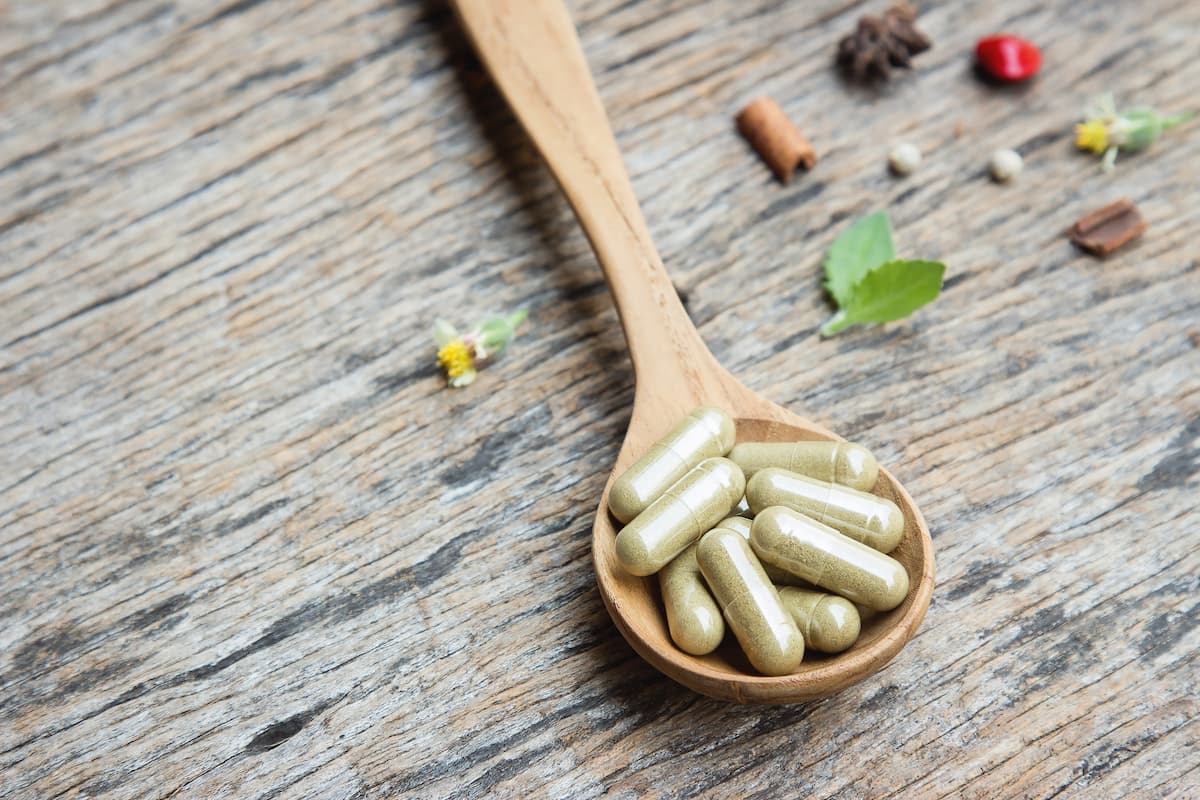
Ashwagandha affects thyroid hormone levels. Find out if you can use it.
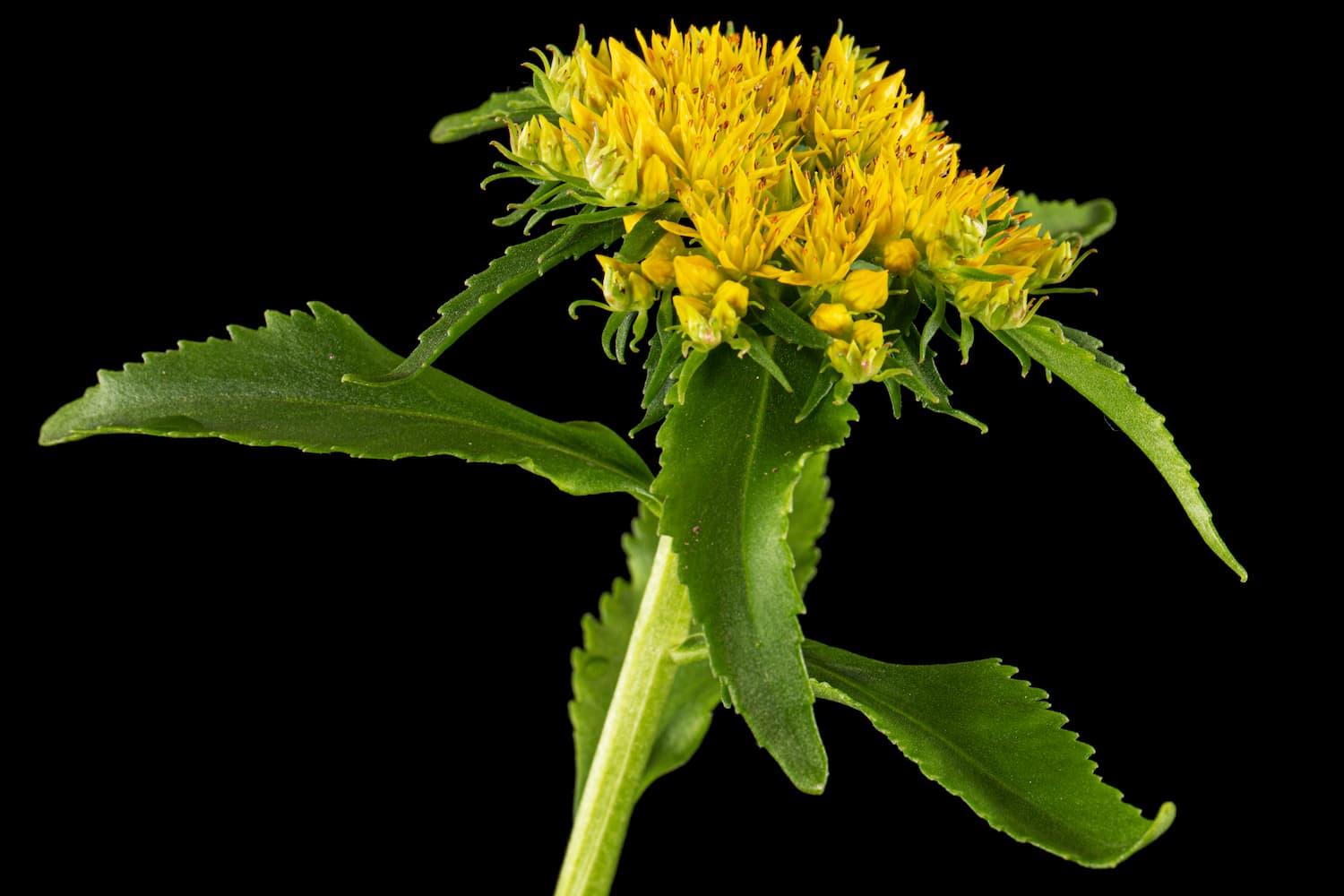
See how mountain pintail can affect your wellbeing.

Check out the opinions of doctors and other professionals about ashwagandha. Also find out what people on the forum think about it.
